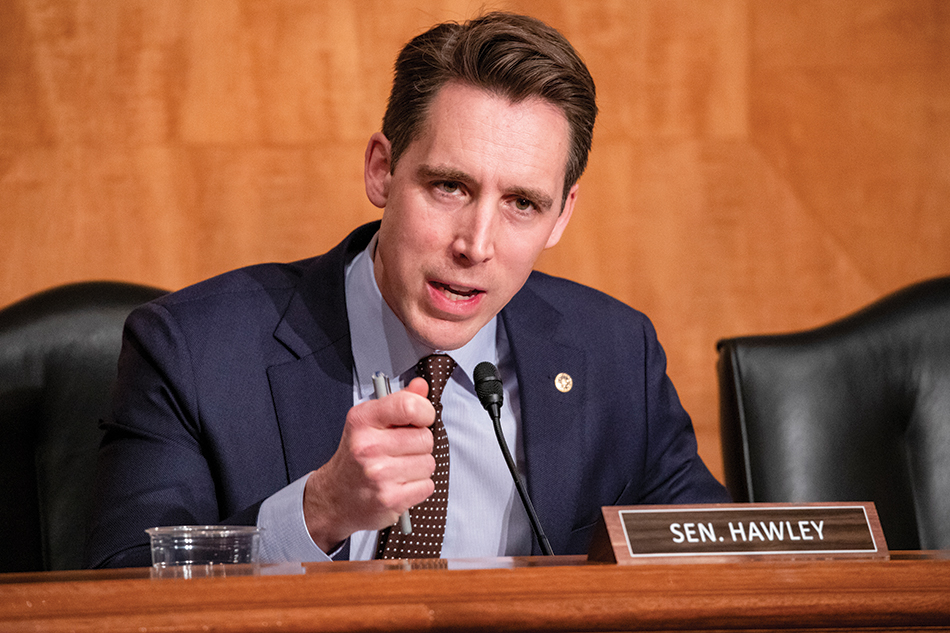Sen. Hawley's BAD ADS Bill Targets Behavioral Advertising

The smarter way to stay on top of the multichannel video marketplace. Sign up below.
You are now subscribed
Your newsletter sign-up was successful
Sen. Josh Hawley (R-Mo.) will be introducing the Behavioral Advertising Decisions Are Downgrading Services (BAD ADS) Act.
The bill would remove a large internet content providers' Sec. 230 immunity from liability for most third-party content if they use behavioral advertising or traffic in the data used to deliver such ads. It would also make companies that serve ads to those providers liable for claims against them if the providers had directed that behavioral ads not be served to their users.
The Sec. 230 immunity would be removed for a 30-day period following each incidence of a behavioral ad.
Related: Rep. Khanna Says Big Tech Needs Well-Crafted Regulation
The bill defines the advertising that would lose a provider that key liability protection as: "[A] form of advertising 15 in which an advertisement is displayed to a user of an interactive computer service based on 1) the personal traits of the user; 2) previous location in 21 formation with respect to the user; 3) personal information from a profile about the user that is created for the purpose of selling advertisements; 4) the previous online or 2 offline behavior of the user;" and does not include "contextual advertising, such as advertising that is directed to a user based on 1) the content of the website, online service, online application, or mobile application to which the user is connected; 2) the location of the user, as of the time at which the advertising is directed to the user; 3) the search terms that the user applied to arrive at the website, service, or application to which the user is connected."
Related: GOP Senators Introduce Sec. 230-Targeted Bill
The law would apply to any interactive computer service provider with more than 30 million users per year in the U.S. or 300 million worldwide and had more than $1.5 billion in global revenue annually, unless it has tax exempt status.
The smarter way to stay on top of the multichannel video marketplace. Sign up below.
"Big Tech’s manipulative advertising regime comes with a massive hidden price tag for consumers while providing almost no return to anyone but themselves," said Hawley, citing Google and Facebook as examples. "From privacy violations to harming children to suppression of speech, the ramifications are very real. These kinds of manipulative ads are not what Congress had in mind when passing Section 230, and now is the time to put a stop to this abuse.”
The bill comes the day after the Trump Administration called on the FCC to define what types of content moderation should not earn Sec. 230 immunity. It is part of the President's effort to crack down on what he has said is the suppression of conservative speech online in the guise of content moderation.
Not surprisingly, the Association of National Advertisers is opposed to the bill. "There are all sorts of reasons why consumers want to receive information in areas they are focusing on, rather than just getting undifferentiated content," said ANA group EVP, government relations, Dan Jaffe. He also said that some of the limitations as to who would be covered may raise constitutional issues.
He said clearly focus on the Sec. 230 issues is increasing in Washington, but said, hopefully, that would not mean putting on limitations on relevant advertising that consumers want.
Contributing editor John Eggerton has been an editor and/or writer on media regulation, legislation and policy for over four decades, including covering the FCC, FTC, Congress, the major media trade associations, and the federal courts. In addition to Multichannel News and Broadcasting + Cable, his work has appeared in Radio World, TV Technology, TV Fax, This Week in Consumer Electronics, Variety and the Encyclopedia Britannica.

